'Shadow foreign policy' detailed in newly released impeachment testimony
WASHINGTON — Testimony newly released by the House impeachment panel investigating President Trump for allegedly abusing foreign policy to advance his political interests indicates that the top American diplomat in Ukraine was concerned that the White House was “undercutting the longstanding U.S. policy” of bolstering a key ally on Russia’s western flank.
The opening statement by William Taylor, the current U.S. chargé d’affaires in Kiev, had already been made public, but Wednesday’s release of his full testimony adds significant detail to the narrative. In meticulous detail, the career diplomat explained his concerns about withholding aid from Ukraine “for no apparent reason.” Taylor testified he eventually came to understand how Trump’s personal lawyer Rudy Giuliani was running an “irregular policy channel” with its own agenda, not immediately apparent to career diplomats like Taylor who were not accustomed to interference from political operatives.
In a statement, Democratic committee chairs said that Taylor’s testimony “shows how President Trump withheld military aid to Ukraine and conditioned its release, as well as a vital White House meeting, on the President of Ukraine publicly announcing investigations into debunked conspiracy theories involving the Bidens and the 2016 election.”
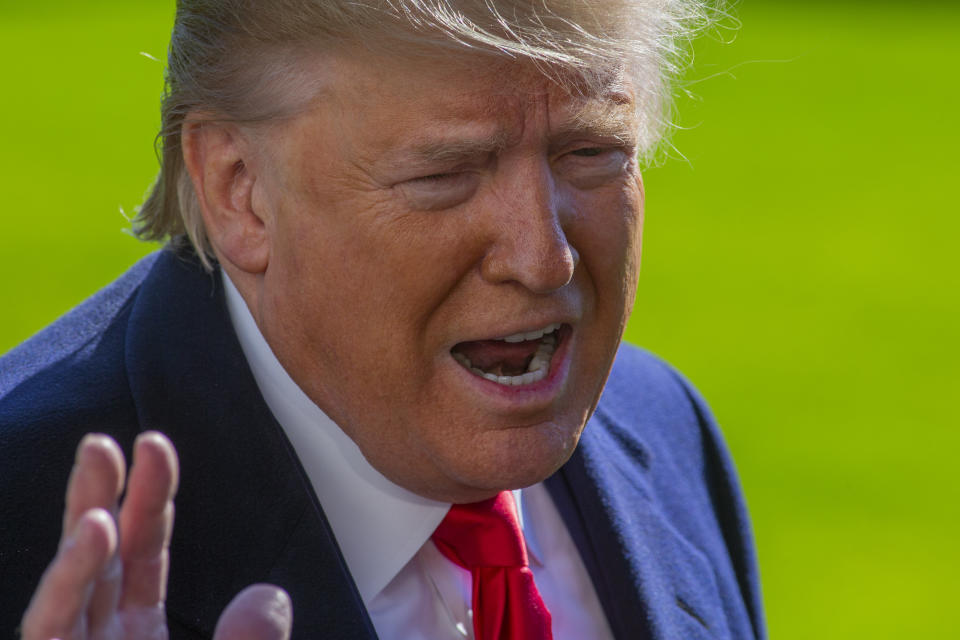
Trump is being investigated over allegations he attempted to pressure Ukrainian President Volodymyr Zelensky to announce an investigation into Hunter Biden, son of former Vice President Joe Biden and a board member of Burisma, a Ukrainian energy company. The approach to Zelensky was coordinated by Giuliani throughout the spring and summer of 2019.
Taylor describes how the U.S. delegation to Zelensky’s inauguration in Kiev met with Trump in the Oval Office on May 23. Trump told those present to “work with Rudy Giuliani” on arranging a meeting with Zelensky, who had taken office just the previous month and would have his stature enhanced by appearing in the White House. Testimony by Taylor and others strongly suggests that the price for such a meeting was political assistance for Trump.
Another quid pro quo was also in play. According to already released witness testimony, Giuliani made it known to Ukrainian authorities in Kiev — and to American diplomats working in the Ukrainian capital — that if Zelensky wanted to receive $400 million in congressionally appropriated aid, including desperately needed munitions for Ukraine’s war with Russia, he needed to announce an investigation of Biden. Trump and Giuliani also wanted an investigation of a pet conspiracy theory among right-wing commentators that Ukraine attempted to interfere in the 2016 election to help Trump’s rival, Hillary Clinton.
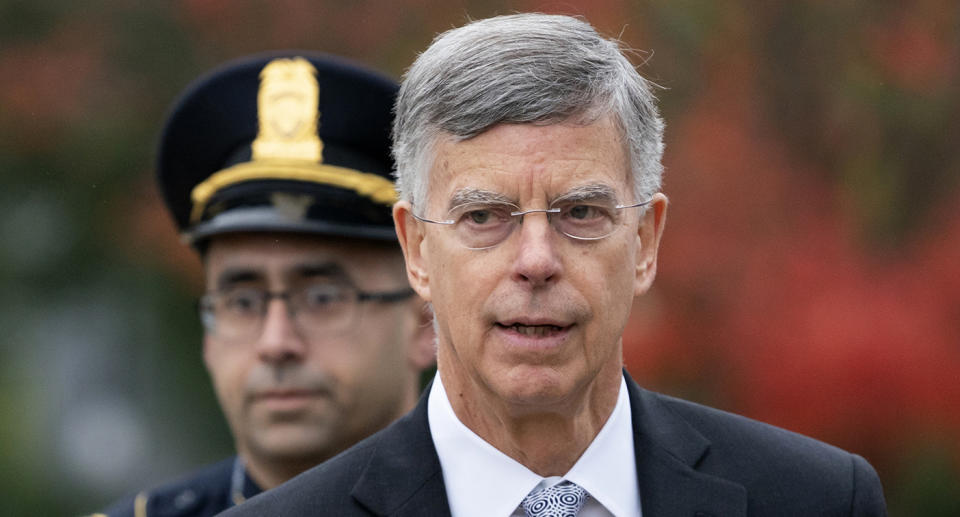
Taylor’s testimony describes Kurt Volker, then the special U.S. envoy to Ukraine, and Gordon Sondland, the U.S. ambassador to the European Union, as aiding Giuliani’s efforts. Both were present at the May 23 meeting, as was Energy Secretary Rick Perry, who has also faced questions about his involvement in the effort to pressure Ukraine.
“Apparently at the instigation of Mr. Giuliani,” Taylor told investigators, “Ambassador Sondland and Ambassador Volker were conditioning an important component of our assistance on what would ultimately be a political action.”
Later in his testimony, Taylor said that when Volker “got involved with Mr. Giuliani, I think that that pulled him away from or it diverted him from being focused on what I thought needed to be focused on.” Taylor otherwise praised Volker as “a man of integrity.”
Transcripts of previously secret witness testimony have been released on each of the last three days. Volker and Sondland both described themselves as broadly amenable at first, but growing more troubled as they understood the full, unsettling scope of what Giuliani was seeking.
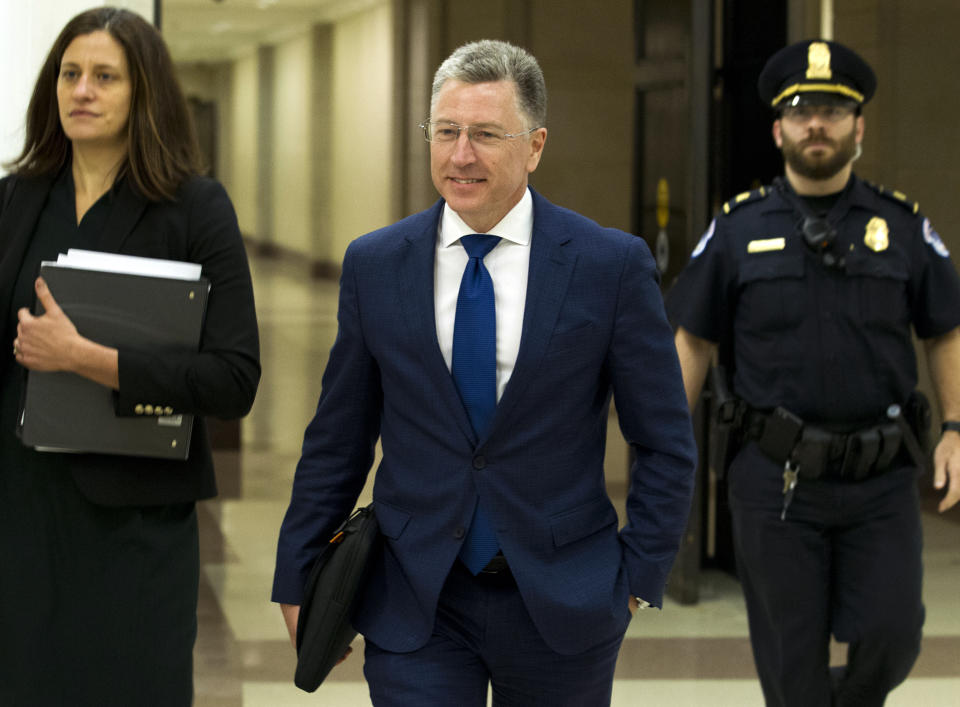
Zelensky never did make a statement about a new Biden investigation, and there was no meeting with Trump in the Oval Office. And though some $400 million in foreign aid was withheld for much of the summer, pressure from Congress resulted in the appropriation being released in September.
Republicans had previously complained about the lack of transparency in the impeachment inquiry, comparing the hearings taking place in a closed basement room in the Capitol to the notorious Star Chamber courts of medieval England.
But the thousands of pages of witness testimony now readily available to anyone with an internet connection don’t appear to have in any way bolstered Trump’s case. His allies on Capitol Hill have insisted that nothing in that testimony suggests that Trump acted improperly by tying aid to Ukraine with an investigation into the Bidens. But even the testimony of a relatively Trump-friendly witness like Sondland shows that he grew troubled by Giuliani’s efforts.
In an exchange during his Oct. 17 interview, Sondland agreed with the assessment that what Giuliani was doing in Ukraine was likely “illegal.” That exchange had not been available for public scrutiny until this week. And it is only one of many details in Sondland’s testimony and that of others that could prove damaging to Trump.
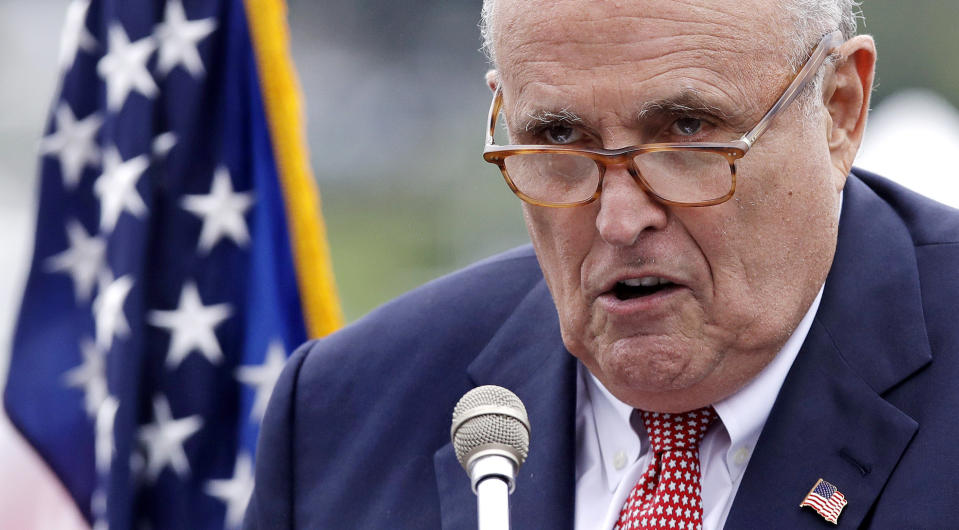
While these facts would eventually have become public in any event, this week’s cavalcade of troubling revelations calls into question the GOP strategy of questioning the impeachment process, as opposed to rebutting the allegations themselves. Now that the process has begun to conform to Republican demands, Trump’s allies have to fight on the merits of the charges.
It is a fight that has been made more difficult by the testimony of officials like Taylor.
Taylor describes Giuliani’s confident conduct of a one-man foreign policy outfit, as when he informed a top Ukrainian official on July 10 that “the phone call between the two Presidents was unlikely to happen,” according to Taylor’s recollection, presumably because no announcement of a new Biden investigation had been made. Taylor described himself as “alarmed and disappointed” by Giuliani’s announcement.
He was not the only diplomat disturbed by the extraordinary pressure being applied by Trump’s political functionaries. Taylor describes a meeting, also on July 10, that included national security adviser John Bolton, who has since been fired, and Bolton’s deputies Lt. Col. Alexander Vindman and Fiona Hill. All three shared the conviction that it was necessary to provide military assistance to Ukraine, parts of which are occupied by Russia and Russian-backed militias.
In the course of the July 10 meeting, Sondland “raised investigations,” which Taylor says “triggered Bolton’s antenna, political antenna.” Grasping that something was amiss, Bolton deemed the meeting over. “We don’t do politics here,” he said, according to Taylor.
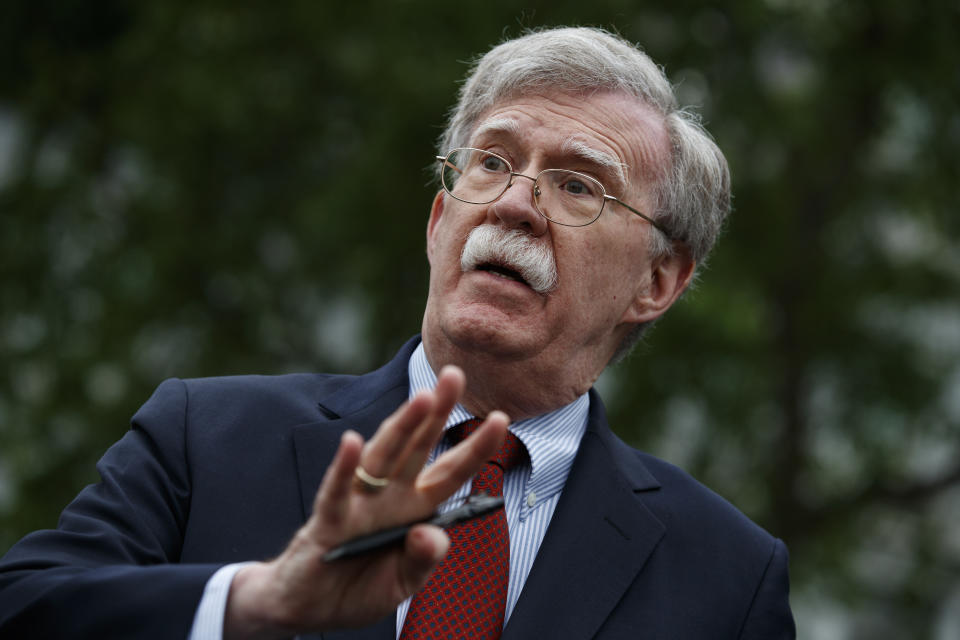
Taylor’s testimony also touched on interactions with officials at the Office of Management and Budget who were blocking the appropriations, even as the Pentagon made the case with increasing urgency that Ukraine needed U.S. military support. Taylor described how, during a video conference call on July 18, an OMB official said that “her boss had instructed her not to approve any additional spending of security assistance for Ukraine until further notice. I and the others on the call sat in astonishment. The Ukrainians were fighting the Russians and counted on not only the training and weapons but also the assurance of U.S. support. All that the OMB staff person said was that the directive had come from the President to the Chief of Staff to OMB.”
Russell Vought, a Republican insider now in charge at OMB, has declined to appear before the impeachment panel. The same goes for his deputy, Michael Duffey, former head of the Republican Party in Wisconsin, who currently oversees defense funding for OMB. Current acting White House chief of staff Mick Mulvaney was formerly the director of OMB. His one explanation of why the funds were not appropriated in a timely manner, proffered during a press conference last month, was widely seen as disastrous for the president’s defense.
The OMB hold persisted into late summer, running the risk that the appropriated funds would expire on Sept. 30, the end of the fiscal year. Sondland sought to justify the hold by explaining, according to Taylor, that “President Trump is a businessman. When a businessman is about to sign a check to someone who owes him something, he said, the businessman asks that person to pay up before signing the check.”
That would appear to describe the very kind of quid pro quo Democrats have charged is an impeachable offense. Republicans, and Trump himself, have maintained that there was nothing improper or illegal in trying to gain concessions from Zelensky in exchange for aid.
Taylor also described a “nightmare” scenario in which Zelensky would announce the launch of an investigation, but the military aid would remain withheld. He suggested that Russia “would love” to see “the humiliation of Zelensky at the hand of the Americans.” Taylor said that if that were to take place, he would be forced to quit his post. But the holds were eventually lifted, and Taylor remained on the job.
_____
Download the Yahoo News app to customize your experience.
Read more from Yahoo News:


